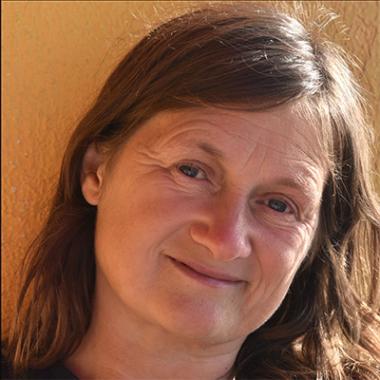- Literary Studies
About me
I was educated at the University of Leeds (BA Hons in English) and the University of Wales, Cardiff (PhD in English). Before coming to Westminster, I was employed at Goldsmiths College, University of London, and at the National University of Ireland, Maynooth.
Teaching
I teach, and am leader of, a module on Children's Literature which takes in texts from The History of Little Goody Two-Shoes (1765) to Malorie Blackman's Noughts and Crosses (2001). I also teach on the first-year module "What is Literature", which runs from Sophocles to Hilary Mantel, as well as "The Novel" and tutorial modules.
Research
My main areas of research are in Gothic and Romantic Studies. I am particularly interested in Gothic and performance - in the fields of music, theatre and tourism.
I have been working on a project on The Music of the Gothic: 1790-1820, receiving a British Academy and Leverhulme Trust grant that facilitated a lecture-recital given by me and 11 musicians at the Wallace Collection in October 2022 and a collection of audio files recorded at the University of Westminster’s Recording Studios. The recordings include music by composers such as Harriet Abrams, Stephen Storace, Michael Kelly, William Shield and Samuel Arnold. All 30 tracks are freely available on the University of Westminster’s digital repository at https://doi.org/10.34737/w1444 The hour-long film of the lecture-recital can be seen at https://www.youtube.com/watch?v=ZJmOPSVhXS0
My monograph The Music of the Gothic: 1790-1820 (Cambridge University Press, 2024) looks at the music, both real and imagined, of Gothic novels, plays, melodramas and operatic romances. It formulates a new model of the generic relationships of Gothic drama of the Romantic period, arguing that comic opera is the shaping force behind much Gothic drama (which is why Gothic drama strikes so many modern readers as dissonant in terms of tone and content). The work challenges current ideas about the role of music in Gothic literature, arguing that, in the 1790s, the music in Gothic novels and drama is primarily ‘sweet’ and ‘beautiful’ and that the pivotal date for the emergence of Gothic music as we know it, is 1802 when Holcroft and Busby’s A Tale of Mystery (1802) is produced.
Gothic Tourism (Palgrave Macmillan, 2016) focuses on contemporary Gothic Tourism in England (in such forms as ghost walks, scare attractions and prison museums), although there are also chapters on Gothic tourism in the eighteenth century (at Strawberry Hill) and in the nineteenth (at Madame Tussaud's). The work considers the origins of modern Gothic, in particular the phenomenon of 'performed architectures'. Underpinning the whole volume are investigations of the relation of Gothic tourism to contemporary debates about heritage and history, to the Gothic aesthetic, and to literature, film, folklore, heritage management, arts programming, and the 'edutainment' business.
I am co-editor (with Catherine Spooner) of the Routledge Companion to Gothic (2007), for which I wrote essays on 'Gothic and the Romantics' and 'Contemporary Gothic Theatre'. I have also published on various other topics in Romantic and Gothic studies.
As well as continuing my research on the music of Romantic-period Gothic, I am working on a number of other projects. I am investigating Romantic-period travel journals, particularly those chronicling tours of Wales and England, and have produced essays and a podcast on the subject, as well as convened a Study Day on Diaries and Journals at the British Library. I am also interested in the relation between literature and the twentieth-century heritage movement.
Publications
For details of all my research outputs, visit my WestminsterResearch profile.
